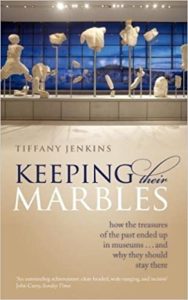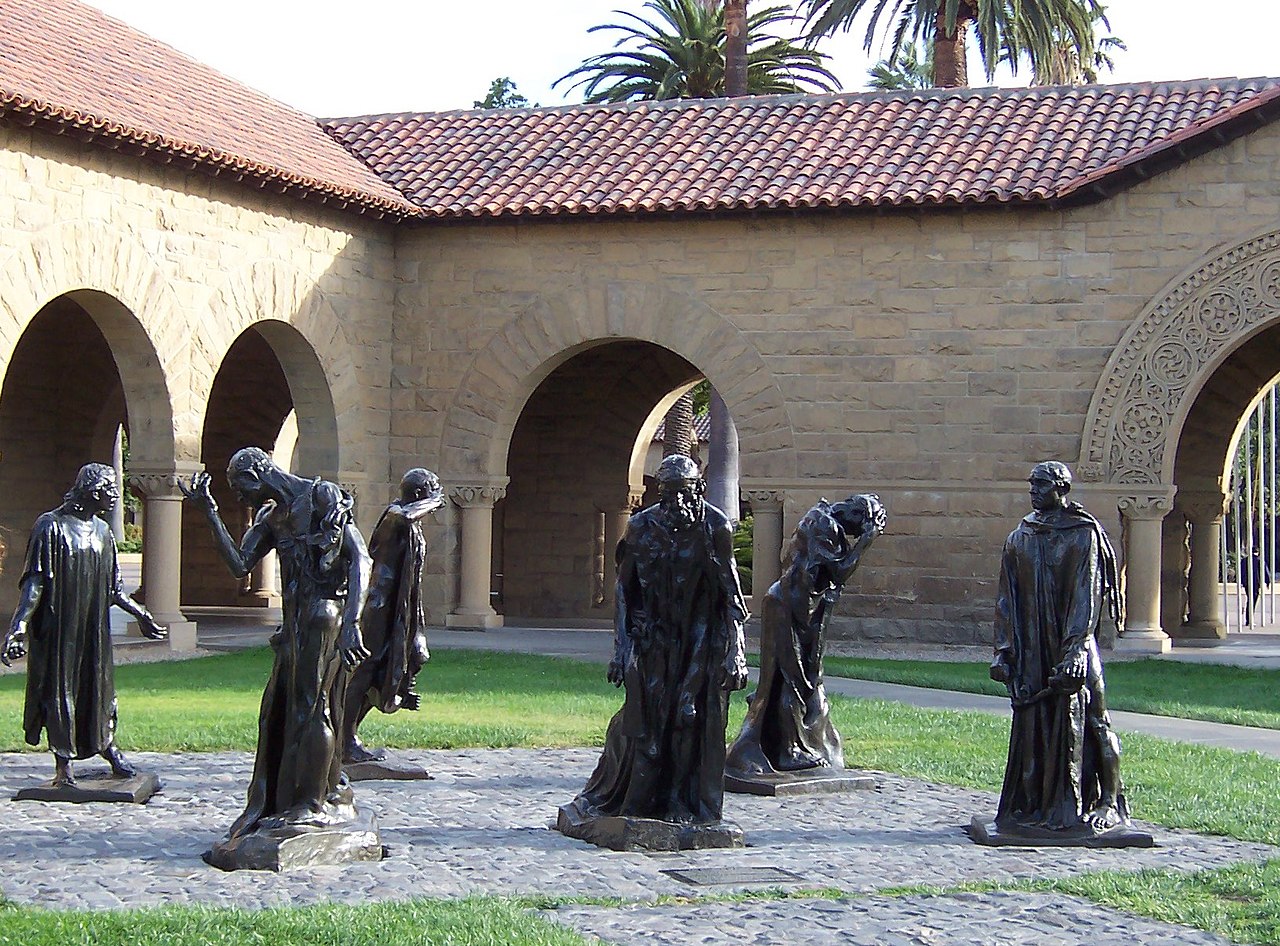Why do you visit museums, and what do you hope will “happen” while you’re there, or after you’ve left? How do the objects within a museum affect your experience, and how do we know that a given piece “belongs” there? Tiffany Jenkins, author of Keeping Their Marbles, and EconTalk host Russ Roberts’ guest in this episode, suggests there’s something transporting about visiting a museum, an experience she especially appreciates since COVID forbade such opportunities. To visit a museum, Jenkins hopes, provides one with an encounter with the past and the people of the past, noting that the things that impress us in museums weren’t created by people to impress us.

Much of the conversation focuses on the issue of artifact repatriation- the Elgin marbles at the British museum being the dominant example from Jenkins’ book. These sculptures, taken from the ruins of the Parthenon more than 200 years ago, reside half in London and half in Athens (at the Acropolis Museum). While technically legally acquired, many questions remain as to whether the marbles ought to remain in Britain. What do you think? How does the case of the Elgin marbles illuminate the larger purpose(s) of museums in society today? We’d love to hear your thoughts.
1- What are the bases of the demands to “return” artifacts such as the Elgin marbles to their country of origin? What is Jenkin’s argument against returning them to Athens? What does she mean when she says, “objects do different things in different places?” Do you think they should be returned? Explain.
2- Jenkins describes how Brits’ feelings were mixed at the time of the marbles’ acquisition. To what extent does it “matter” that the sculptures’ legal agreement still exists? How does the “looting” of the French compare to that of the British (which Jenkins describes as “much more accidental and haphazard and informal”)? How does the way in which such artifacts are acquired affect the argument for their repatriation?
3- Jenkins makes the bold prediction that the Elgin marbles will never leave the British Museum, while Roberts suspects they will be returned, perhaps replaced by casts. (Roberts mentions his appreciation of the Burghers of Calais at Stanford, of which there are many copies.) How does it matter whether an exhibit features original works versus reproductions? Couldn’t the exhibit at the British Museum be equally enthralling with casts or full-color reproductions of the marbles? Explain.
4- What should be the role of museums today? How do museums of the Enlightenment age compare to those of the present day, according to Jenkins? How has the notion of accessibility in particular changed from the time of the Enlightenment till today? Have museums become moralized? Do we have more or less interest in other cultures today than in the past? In what way(s)?
5- The conversation includes a good deal of discussion about how the mission of museums has changed over time, and many changes in the way in which exhibits are presented have also occurred in an attempt to illuminate the “hidden histories” of the past. (Roberts and Jenkins cite the National Museum of the American Indian as one such example.) Are we in danger of “quarantining the past rather than exploring it,” as Jenkins suggests?


READER COMMENTS
Luke J
May 25 2023 at 5:53pm
If a creator being – “God” – exists then this being (as revealed through various religions) values justice through reconciliation and returning the Elgin Marbles supports this moral position. If all moral values are products of evolution and/or subjective social conventions then the return of the Elgin Marbles is also a commonly shared contemporary platitude.
On the other hand, what claim does the modern state of Greece have on 5th century art? Are the products and labors of human beings owned by States? Athens today contributed 0 (zero) to the creation and preservation of the so-called Elgin Marbles so any rights to such property seem contrived.
Amy Willis
May 26 2023 at 1:41pm
Thanks, Luke!
It’s a valid point re what individuals might have claim to the statues today. And there WAS a legal agreement, though it was signed by Ottomans, rather than Greeks. How does that change the circumstance?
How might your reply be different if ALL the marbles were in the UK, rather than half there and half in Athens? (I am quite taken by Jenkins’ point about the value of that separation…)
Luke J
May 31 2023 at 5:36pm
Hey Amy,
Jenkins’ point about the value of separation was interesting. Which aesthetic does one prefer: a mosaic of cultures, or complete cognates? Is this even the proper indicator to determine whether or not to return items?
I’ve been reading the Amelia Peabody series of novels by Elizabeth Peters in which the protagonist Peabody is in frequent conflict with the illegal Egyptian antiquities trade. The fictional stories are set in the late 1800s (authored a century later) though Peabody’s character is unassailable there are moments when my modern sentiments as a reader are out of step (e.g. viewing the “legitimate” antiquities trade as illegitimate).
Is the Ottoman-Elgin agreement legitimate? Was the Ottoman Empire even legitimate? It is very easy to lose oneself in the weeds, and it is all too easy to negatively criticize the actions of peoples of the past no matter their intentions because today we’ve the “benefit” of hindsight.
Whatever you think of “The State”, returning artwork and artifacts to their regions of origination is a conciliative gesture that may reduce conflict between the people of those governments. On the other hand, if you can allow for a broader group identify – that of belonging to the human race – then maybe show some grace, let bygones be bygones, and appreciate the preservation of (and lessons from) history wherever they may be found.
Amy Willis
Jun 5 2023 at 9:50am
Great point re mosaic v cognates.
I did not know about the Amelia Peabody series… Added to my summer reading list! 🙂
Luke J
Jun 5 2023 at 9:18pm
Fun. I hope you like them. If you’re into audiobooks, I recommend the Peabody series narrated by Barbara Rosenblat. True treasures!
Comments are closed.